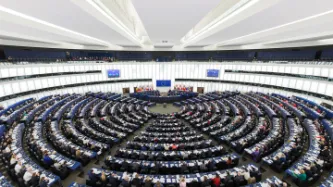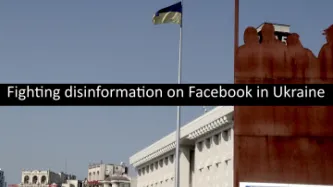Search
Content type: Examples
The Sunday edition of the national newspaper Bild reported that Chancellor Angela Merkel's conservative Christian Democrats (CDU) party and the centre-right Free Democrats (FDP) party purchased "more than a billion" pieces of personal data about potential voters from a subsidiary of Deutsche Post, which offered target-mailing concepts to its clients. The Deutsche Post subsidiary, Deutsche Post Direkt, rejected these claims.
Instead, Deutsche Post is reported as insisting that it never…
Content type: Examples
According to research conducted by Ronan Chardonneau, a French associate professor of digital marketing at Angers University, none of the websites of the eleven candidates' in the 2017 French presidential elections, that he looked into respected CNIL's directives regarding information that should be available on the website and consent requirements for data collection. According to this research, nine of the candidates used Google Analytics, without activating the option to anonymize data…
Content type: Examples
Before and after the Italian election on 4 March 2018, concerns were raised about the spread of misinformation, disinformation and inflammatory content through a network of news sites and Facebook pages.
In November 2017, in the run up to the election, Buzzfeed reported on links between a large network of Italian news websites (175 domain names) and Facebook pages owned by a media network company Web365 – that represents one of the most popular alternative media operations in Italy including…
Content type: Examples
In an experiment conducted by Fabio Chiusi and Claudio Agosti during the 2018 election season and set out in detail in their report for Tactical Tech, the duo sought to investigate the Facebook algorithm that powers users’ news feed and the algorithm’s treatment of political content. One of the experiment’s goals was to observe how perception of reality is algorithmically shaped in the context of an electoral campaign. In order to do this, Chiusi and Agosti created six bot accounts on Facebook…
Content type: Examples
The Five Star Movement, a populist party, which is currently in power along with the League in Italy initially grew out of Il Blog delle Stelle (formerly Beppe Grillo’s blog). The Five Star Movement was founded by comedian Beppe Grillo, along with Gianroberto Casaleggio, a web strategist in 2009. As well as the blog and The Five Star Movement’s heavy use of social media, it consults its supporters on candidates, policies and partnerships via a software system/ internet platform…
Content type: Examples
A company called Liegey Muller Pons (LMP) offers data analysis tools to help candidates and political parties improve their political campaign strategy. The three founders of the company were member's of former President François Hollande's 2012 campaign team. LMP was then hired by current President Emmanuel Macron during his Grande Marche campaign before the elections and during the presidential elections by the Socialist Party candidate Benoît Hamon. LMP offers data analysis that allows…
Content type: Examples
NationBuilder is an American political campaigning software company, which offers a fully integrated suite of tools for the organization of a campaign, and outreach through e-mail, telephone, social media, and traditional door-to-door campaigning. Many candidates in the 2017 French presidential elections were reported as using their services. Among others, the company offers a functionality called 'match'. When users provide their email address on a campaign's website, 'match' allows the…
Content type: Examples
During the primary elections in November 2016, the former French president, Nicolas Sarkozy, reportedly used an app, called Knockin, that made it possible to identify and geolocate supporters for door-to-door campaigning. Based on a report by the French Radio RMC, the app would harvest public data about anyone that liked a page or a post that the candidate put on his campaign page in order to find the supporter's address. Door-to-door volunteers were then able to see on the app the address…
Content type: Advocacy
In December 2018, PI responded to the UK Information Commissioner's (ICO) Call for Views on a Code of Practice for the use of personal information in political campaigns.
The consultation followed on from the ICO's policy report Democracy Disrupted?, published in July 2018, which recommended that the Government should legislate at the earliest opportunity to introduce a statutory Code of Practice under the Data Protection Act 2018 for the use of personal information in campaigns.…
Content type: News & Analysis
This piece was first published in GDPR today in March 2019.
Elections, referendums and political campaigns around the world are becoming ever more sophisticated data operations. This raises questions about the political use and abuse of personal data. With the European Union elections fast approaching and numerous national and local elections taking place across EU Member States, it is essential that the legal frameworks intended to protect our personal data do just that.
Member State…
Content type: News & Analysis
Photo by DAVID ILIFF. License: CC-BY-SA 3.0
Between 23 and 26 May 2019 Europeans will be voting to elect members of the European Parliament.
Since the last elections in 2014, much has changed within and without the European Union: the rise of nationalism and Euroscepticism, the protracted armed conflict in Ukraine and the occupation of Crimea by Russia, the new political orientation of the United States, just to name a few.
Among the new challenges facing these elections is…
Content type: Video
In April 2019 Ukraine held presidential elections. We were in Kyiv to hear about people's experience monitoring online disinformation – a big issue in this election. Activists in Ukraine have long experience navigating the noisy and chaotic environment that disinformation creates – which comes not only from Russia, but also from domestic politicians and others with money and power.
At PI, we’re working to make sure that the way data is used by political actors and…
Content type: Long Read
“Truth exists, but you have to find it”, Oleksandra Matviychuk of Ukraine’s Center for Civil Liberties told me as I interviewed her in central Kyiv one week before the 2019 Ukrainian run-off election, “and in order to do so you have to make some effort”. We’re talking about her experience working on the ground in Ukraine, a country with a long history of battling against disinformation.
Activists in Ukraine have long experience navigating the noisy and chaotic environment that disinformation…
Content type: Long Read
This image was found here.
Spain is holding a national general election on April 28 (its third in four years). Four weeks later Spaniards will again go to the polls to vote in the European Parliament elections. At Privacy International we are working to investigate and challenge the exploitation of people’s data in the electoral cycle including in political campaigns. This includes looking at the legal frameworks governing the use of data by political parties and their…
Content type: Examples
In February 2019, with a general election expected in May, the Australian government revealed that Australia's main political parties had been hacked by a "sophisticated state actor". The Australian Cyber Security Centre uncovered the hack while investigating a just-revealed hack of the Australian parliament's computer networks. A spokeswoman for China's ministry of foreign affairs denied the suggestion that China was responsible.
https://www.ft.com/content/9de75c4a-331f-11e9-bd3a-8b2a211d90d5…
Content type: Examples
On January 9, 2019 the UK Information Commissioner's Office fined SCL Elections, also known as Cambridge Analytica, £15,000 for failure to comply with an enforcement notice the ICO issued in May 2018 ordering the company to respond in full to a subject access request submitted by US-based academic David Carroll. The company was also required to pay £6,000 in costs and a victim surcharge of £170. Information Commissioner Elizabeth Denham noted that UK data protection laws apply to all data…
Content type: Examples
In December 2018 reports emerged that the Indian Electoral Commission would propose amendments to the Representation of the People Act 1951 that would require citizens to link their Electoral Photo ID Card to their Aadhaar number with the stated goal of improving the accuracy of the electoral rolls. The legal change was needed because two months earlier the Indian Supreme Court had ruled that Aadhaar could only be made mandatory for welfare schemes, Permanent Account Number (PAN) cards, and…
Content type: Examples
In January 2019, Facebook announced it would extend some of the rules and transparency tools it developed for political advertising for upcoming spring elections in Nigeria, Ukraine, India, and the EU. In Nigeria, the site will bar electoral ads from advertisers outside the country where the election is being held, build a searchable library of electoral ads and retaining them for seven years, check the identity of individuals buying political ads against government-issued documents, and…
Content type: Examples
The results of a year-long review issued by the UK Information Commissioner's Office in November 2018 uncovered a "disturbing disregard for voters' personal privacy" on the part of 30 organisations, including social media platforms, political parties, data brokers, and credit reference agencies. Based on information uncovered during the investigation, the ICO sent 11 warning letters requiring action by the main political parties, and announced its intention to conduct audits; issued an…
Content type: Examples
A December 2018 analysis of the use of Facebook by Matteo Salvini and Luigi Di Maio, Italy's two populist leaders, showed that the two exploited Facebook's streaming video and live broadcast services to bypass the mainstream media and foment discord during the March 2018 Italian general election. They eventually both became deputy prime ministers under a power-sharing arrangement. Social media, the study concluded, is particularly effective at helping rising populist politicians, who may not…
Content type: Examples
In 2019, a prominent page on the Facebook Business site cited the British Conservative Party as a "success story" at the 2015 general election, which put the party into power with a narrow majority. The site boasted that via Facebook the Conservatives had an 80.6% reach in key constituencies, 3.5 million video views, and a social context for 86.9% of all the ads served - and that as a result the party had defied the polls and achieved an outright majority.
https://en-gb.facebook.com/business/…
Content type: Examples
In 2014, when the the far-right party of French politician Marine Le Pen needed cash, the loan of €9.4 million came from First Czech-Russian Bank, which was founded in the early 2000s as a joint venture between a Czech state bank and a Russian lender and went on to come under the personal ownership of Russian financier Roman Popov and obtain a European license via a subsidiary in the Czech Republic. Two and a half months after the Le Pen loan was signed, a Mediapart investigative journalist…
Content type: Examples
As part of the digital campaign to win re-election, in mid-2018 the BJP, which controls the Indian national government as well as that of the state of Chhattisbarh, handed out $71 million worth of free phones and subsidised data plans to 2.9 million of the state's voters and then used the phones to target prospective voters. The plan's stated purpose was to bridge the digital divide in the state, which has a population of 26 million; hundreds of cellphone towers are supposed to be added to…
Content type: Examples
A December 2018 report prepared by the Oxford Internet Institute's Computational propaganda Research Project and the network analysis firm Graphika for the US Senate Intelligence Committee found that the campaign conducted by Russia's Internet Research Agency during the 2016 US presidential election used every major social media platform to deliver messages in words, images, and videos to help elect Donald Trump - and stepped up efforts to support him once he assumed office. The report relied…
Content type: Examples
In November 2018, the Spanish senate approved 220-21 an online data protection law intended to ensure compliance with the General Data Protection Regulation with an added amendment that allowed political parties to use personal data obtained from web pages and other publicly accessible sources for political purposes during campaign periods. Spain's Platform for the Defence of Freedom of Information criticised the law's potential to allow parties to create ideological profiles and emulate the…
Content type: Examples
Facebook's latest tool for inspecting political ads showed that in the run-up to the US mid-term elections in November 2018, many of the same politicians who had been questioning Facebook about privacy and leaked user data were spending campaign funds on advertisements on the service. Between 2014 and 2018, the digital percentage of political spending rose from 1% to 22% (or about $1.9 billion); between May and November 2018 political spending on Facebook and its subsidiaries came to nearly $…
Content type: Examples
A 2018 study found that Twitter bots played a disproportionate role in spreading the false claim, made by US President Donald Trump shortly after winning the election but losing the popular vote in November 2016, that 3 million illegal immigrants had voted for Democratic opponent Hillary Clinton. After examining 14 million messages shared on Twitter between May 2016 and May 2017, Indiana University researchers found that just 6% of Twitter accounts identified as bots spread 31% of "low-…
Content type: Examples
In the run-up to the May 2019 European Parliament elections, Google announced it would launch a new set of transparency tools to combat voter manipulation. Before being allowed to buy advertising on Google platforms, campaigns will be required to verify their identity, and approved ads will be required to display the identity of their purchaser. Google will build a real-time searchable database of all political ads and show their purchasers, costs, and demographics. Facebook announced similar…
Content type: Examples
In November 2018, the UK government announced that 11 local authorities across England would participate in Voter ID pilots in the interest of gaining "further insight into how best to ensure the security of the voting process and reduce the risk of voter fraud". Five local authorities participated in pilots in the 2017 general election. The new pilots will test four models of identification checks: photo ID (Pendle, East Staffordshire, Woking), photo and non-photo ID (Ribble Valley, Broxtowe,…
Content type: News & Analysis
PI has today written to Google, Instagram, Snapchat, TicTok, Twitter, YouTube, and WhatsApp to ask for more information about their steps to tell people why they are seeing ads. Facebook recently announced expanding the company's ad transparency measures to include more information about why an ad or content appears in a user's newsfeed. While Facebook has a lot more to do, it is important that all technology companies provide advertising transparency.
Recently, we have seen how platforms…





























